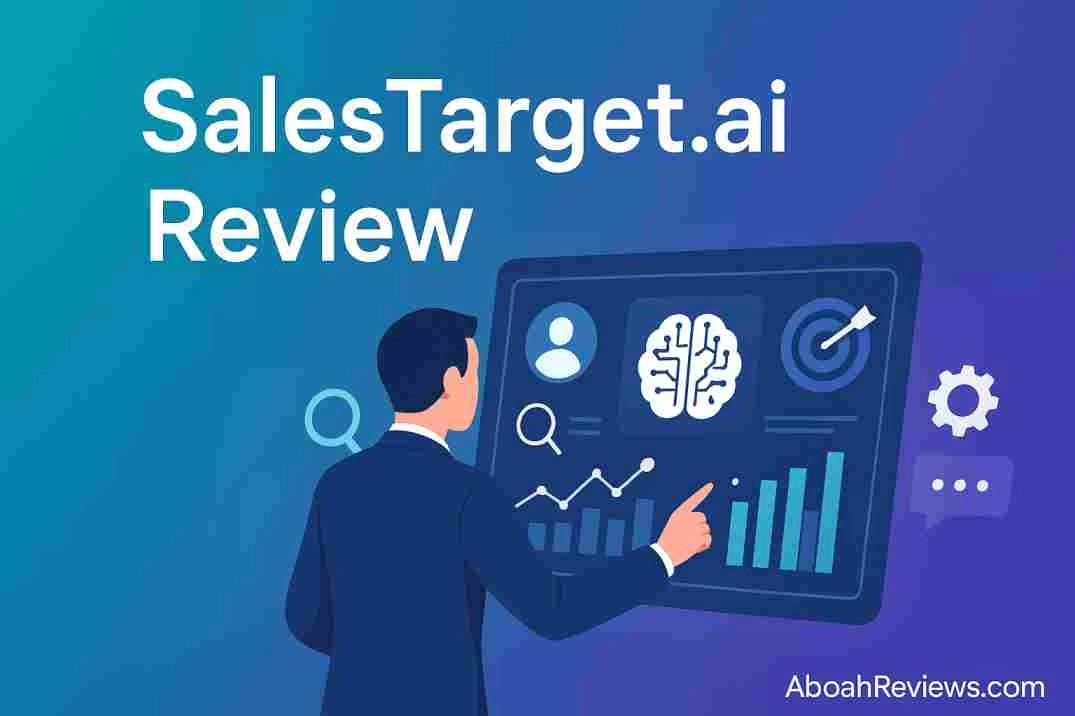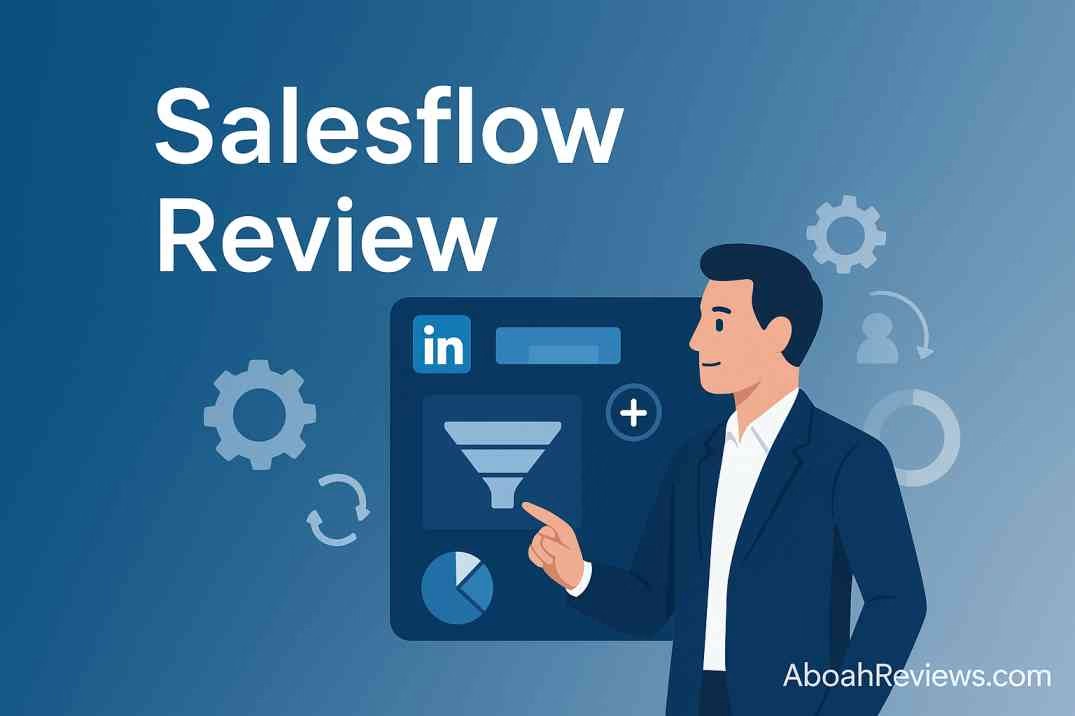White label SEO has transformed how agencies scale their business without expanding their team.
Did you know companies spend more than $79 billion on SEO each year? This massive investment happens because businesses recognize that ranking higher in search results directly impacts their bottom line.
For digital marketers and growth managers looking to capture a piece of this lucrative market, white label services offer a compelling solution.
When I first discovered SEO white label services, I was struggling to meet client demands without hiring more specialists. Many agencies face this same challenge.
The average hourly rate for SEO providers sits at $134.99, with most businesses budgeting between $500 to $10,000 for monthly SEO retainers.
What makes whiteblabel SEO particularly attractive is the solid profit margin agencies can enjoy without the time-consuming burden of internal project management.
We’ve found that white label SEO creates the highest satisfaction for small business clients. This makes sense because these services help increase organic search engine traffic by ranking pages higher in search results, ultimately boosting conversions and revenue.
In this article, I’ll walk you through our proven framework that has helped agencies scale from zero to $50K monthly using white label SEO partnerships. Are you ready to transform your agency’s growth potential?
What Is White Label SEO? 
As a digital marketing agency owner, I’ve discovered that white label SEO offers a perfect solution for expanding service offerings without hiring additional team members.
White label SEO represents a business model where agencies can resell SEO services provided by specialized third-party companies under their own brand name.
This approach has fundamentally changed how agencies operate and scale in today’s competitive market.
How Does White Label SEO Work?
- An agency signs up with a white label SEO provider.
- The agency provides the provider with client information and needs.
- The white label provider performs the SEO work (e.g., keyword research, link building, content optimization).
- The provider delivers the work and reports back to the agency under the agency’s brand.
- The agency then presents these services and reports to its end client as if they did the work themselves.
Key Benefits of White Label SEO for Agencies
- Scalability: Agencies can scale their SEO services up or down based on client demand without hiring or laying off staff.
- Cost-effective: It’s often more affordable to outsource than to hire and train an in-house team, especially for smaller agencies.
- Expanded service offerings: Companies can add a new, valuable service to their portfolio instantly.
- Access to expertise: Agencies gain access to specialized skills in areas like technical SEO, content strategy, and link building without needing their own experts.
- Focus on core business: It allows companies to focus on their core competencies, such as client acquisition and management, while a specialist handles the technical SEO work.
White Label SEO vs Private Label SEO: What’s the Difference?
White label SEO and private label SEO are often confused, yet they differ significantly in several aspects.
With white label SEO, you resell third-party SEO services under your own branding, but the vendor may have some visibility in reports or client communication depending on your arrangement.
I initially chose this approach for my small agency due to its speed and simplicity: it allowed me to offer SEO services almost immediately.
In contrast, private label SEO gives agencies full control over the SEO campaign, processes, and deliverables. The key distinction lies in who specifies the service content.
For private label relationships, the buyer (your agency) specifies the design and offerings, whereas in white label relationships, the provider determines the core offering with customization options.
After testing both models, I found that white label SEO works best for agencies needing to deploy services quickly without significant setup time, whereas private label SEO suits established agencies seeking to create distinctive offerings.
How SEO Reseller Services Help Agencies Scale Faster
The SEO reseller program operates on a straightforward principle: your agency becomes the middleman between clients and an SEO provider. Here’s how it typically functions:
- Your agency partners with a white label SEO provider
- You sell these SEO services to clients under your brand
- The white label provider handles the technical implementation
- Your clients receive branded reports showing their progress
What makes this arrangement powerful is that the client never sees the original provider; all deliverables and communication appear to come directly from your agency.
This creates a seamless experience where clients view you as their complete solution provider.
One agency owner I know initially worried about losing control over client relationships.
However, she discovered that good white label partners integrate seamlessly with existing processes, allowing her to maintain those vital client connections.
Why White Label SEO Is in High Demand (2025 Trends)
The increasing popularity of white label SEO comes from several compelling advantages for agencies.
First, it eliminates the substantial costs associated with hiring, training, and retaining in-house SEO experts. For small to medium-sized agencies especially, maintaining steady cash flow alongside reducing unnecessary expenses is paramount.
Additionally, white label SEO allows agencies to focus on their core strengths: client acquisition and relationship management rather than getting bogged down in technical SEO implementation. This strategic focus gives agencies more time for business development and client service excellence.
Moreover, the scalability factor cannot be overlooked. As your client base expands, white label SEO providers scale with you without resource limitations or hiring bottlenecks.
This flexibility enables agencies to take on more clients confidently, knowing that fulfillment is handled by capable partners.
According to industry experts, agencies that recognize these trends early and partner with well-positioned white label SEO companies will thrive in coming years.
Have you considered how much faster your agency could grow with these implementation tasks handled externally?
The growing complexity of digital marketing also plays a significant role. Keeping up with constant algorithm changes and emerging trends requires specialized knowledge that most agencies can’t maintain internally.
Through white label partnerships, agencies gain access to SEO specialists who focus exclusively on staying current with these developments.
The $0 to $50K White Label SEO Framework (Step-by-Step)
Let me share the exact five-step framework I used to build my white label SEO business from nothing to $50K per month.
This approach isn’t theoretical; it’s the same white label SEO roadmap that transformed my small digital marketing agency into a profitable enterprise without requiring a massive team.
Step 1: Start with a niche and offer SEO under your brand
One of the biggest mistakes I made initially was trying to serve everyone.
Instead, focusing on a specific niche creates a blue ocean opportunity. My friend Isaac mastered this concept. After struggling with generic marketing services, he decided to focus exclusively on personal injury lawyers. This targeted approach transformed his agency into an 8-figure business.
Finding your niche requires analyzing:
- What you or your team excel at
- Where there’s active buyer intent
- Services that are repeatable and scalable
For instance, instead of offering generic “on-page SEO,” position yourself as “the agency that helps dental clinics rank #1 through hyper-local SEO optimization.” This specificity makes your offering easier to sell, deliver, and systematize.
Step 2: Partner with a white label SEO provider
Next, find a reputable white label SEO provider that aligns with your values. The process typically works through these steps:
- Your agency partners with a white label SEO provider
- You receive SEO services from this provider
- You rebrand these services under your company name
- You sell them to clients as your own
When selecting a partner, evaluate their track record, tools, pricing model, and level of support. The ideal partner should offer customizable SEO solutions tailored to your clients’ specific needs.
This arrangement lets you maintain client relationships while leveraging specialized expertise.
Step 3: Build SEO packages with clear deliverables
Creating transparent SEO packages with fixed retainers helps clients understand exactly what they’re paying for.
In my experience, structuring offerings into three tiers works effectively:
- Basic Package: For small businesses getting their first traction, including SEO roadmap, basic technical SEO, and monthly reporting
- Growth Package: For scaling businesses, adding content optimization, ongoing link acquisition, and quarterly strategy reviews
- Premium Package: For aggressive growth, including high-volume digital PR, advanced technical SEO, and stakeholder reporting
Each package should clearly outline deliverables, timelines, and expected outcomes. This transparency manages client expectations and demonstrates the value you provide.
Step 4: Use white label SEO reports to show results
White label reporting transforms third-party data into professional deliverables under your agency brand.
Instead of sending generic reports showing “ahrefs.com” throughout, deliver insights through your branded dashboard.
Effective white label SEO reports typically include:
- Keyword rankings across devices
- Traffic growth metrics
- Backlink overview
- Technical SEO insights
- Content performance
Clients stay longer when they clearly see progress. Furthermore, professional reports increase perceived value when reports show “your-agency.com” instead of “Powered by AgencyAnalytics,” clients are willing to pay premium prices.
Step 5: Upsell and retain clients with monthly retainers
Converting one-time projects into retainers creates predictable monthly revenue. After completing an initial project, suggest ongoing support to maintain momentum.
For instance, after delivering a website optimization, offer monthly maintenance, performance monitoring, and security updates.
Retainers solve the feast-or-famine cycle many agencies experience. They provide steady cash flow and deeper client relationships.
I’ve found that offering a three-month introductory package works effectively as a “try before you buy” option.
Remember that increasing client retention by just 5% can boost profits by 25% to 95%.
Through regular reporting and delivering consistent value, you’ll build the trust needed to maintain long-term relationships, ultimately growing to that $50K monthly revenue milestone.
Core Services Offered by White Label SEO Providers
The backbone of any white label SEO partnership lies in its core services.
When I first started working with white-label SEO providers, I was amazed by the comprehensive suite of solutions they offered under one roof.
These services allow agencies like mine to deliver professional SEO without maintaining an in-house team of specialists.
1. On-page SEO: title tags, meta descriptions, and content
On-page SEO forms the foundation of any successful optimization strategy.
Most white label SEO providers focus on optimizing title tags, which act as clickable headlines in search results that explain what your page is about.
I’ve found that well-crafted meta descriptions (ideally kept to 155 characters) significantly boost click-through rates even though they don’t directly influence rankings.
One white label SEO firm I partnered with excelled at creating meta descriptions that served as mini-advertisements for my clients’ pages.
They included secondary keywords and strong calls-to-action that dramatically improved engagement. Quality providers will ensure these elements match the page’s actual content – Google quickly identifies “trick” descriptions that don’t align with page content.
2. Technical SEO: XML sitemaps, mobile optimization, page speed
Technical SEO addresses the backend elements that help search engines crawl and index websites effectively.
XML sitemaps essentially function as roadmaps telling search crawlers what content is available and how to reach it, ultimately speeding up the indexing process.
This is particularly valuable for sites with thousands of pages or frequent content updates.
Given that mobile searches account for over 60% of all online searches, competent white-label SEO providers prioritize mobile optimization. Similarly, page speed optimization is essential since 53% of mobile users abandon sites taking longer than three seconds to load.
3. Off-page SEO: link building and outreach
Off-page SEO primarily revolves around building quality backlinks from authoritative sites.
Our 2020 search engine ranking factors study revealed a clear correlation between total backlinks and Google rankings.
Nevertheless, quality trumps quantity – one high-authority link from a related site outperforms dozens of low-quality links.
White label link building typically includes:
- Broken link building strategies
- Guest posting on relevant industry sites
- Digital PR for brand mentions
- Relationship building with industry publishers
- Participation in roundup posts and podcast interviews
4. Content creation: blog posts, landing pages, and SEO copy
Content truly drives SEO success. Reputable white label SEO agencies offer content marketing services creating SEO-friendly blog posts, landing pages, and website copy with their dedicated content writers.
My best white label partner created content that not only ranked well but actually converted visitors by addressing search intent perfectly.
Quality white label content creation typically follows a defined process:
- Keyword research
- Content planning
- Writing with SEO elements (headings, internal linking)
- Optimization for readability.
5. Local SEO and keyword research for niche targeting
For businesses targeting specific geographic areas, local SEO optimization becomes important. This includes optimizing Google Business Profiles, creating location-specific landing pages, and building local citations.
Creating a great online experience for local searchers is rooted in intent matching – understanding how consumers search for brands, goods, and services offered by local businesses.
Effective keyword research focuses on both geo-specific terms (city names, neighborhoods) and comparative terms (“best”, “cheapest”) that potential customers use.
For niche markets, tailored SEO approaches help connect with ideal audiences and drive more foot traffic and sales.
6. SEO reporting using Looker Studio or Google Search Console
The final critical component involves comprehensive SEO audits and reporting.
White label SEO reporting tools transform third-party data into professional reports under your agency’s branding. These reports typically include keyword rankings, traffic metrics, backlink overviews, and technical insights.
Tools like Google Search Console, AgencyAnalytics, and SEOptimer allow white label customization so reports display “your-agency.com” rather than the original provider’s name.
This professional presentation increases perceived value and helps retain clients by clearly demonstrating progress over time.
The Looker Studio Search Console connector helps measure and analyze site performance on Google Search.
Using both Search Console and Google Analytics together provides a comprehensive picture of how audiences discover and experience websites.
Many providers offer white labeled reporting dashboards that display key metrics like impressions, clicks, rankings, and traffic growth: all under your agency’s branding.
These client-ready reports allow you to demonstrate ROI effectively while maintaining your brand identity.
How to Choose the Right White Label SEO Partner
Selecting the right white label SEO partner fundamentally shapes your agency’s reputation and client satisfaction.
I’ve learned through trial and error that not all white label SEO providers deliver equal value, despite similar marketing promises.
1.Look for a proven track record and case studies
When vetting potential white label SEO partners, I always examine their performance history first.
Request case studies specific to your clients’ industries and verify they’ve maintained success through multiple Google algorithm updates.
This stability indicates genuine SEO expertise rather than short-term tactics. During my search, I discovered that agencies with documented success stories in diverse verticals consistently delivered better results for my clients.
2. Evaluate their SEO tools and reporting dashboards
Quality reporting tools transform complex data into branded client-ready insights. Before committing, I request demos of their dashboards.
Top providers offer real-time analytics, white-labeled client portals, and comprehensive reporting capabilities.
One partner I worked with provided reporting templates with my agency’s branding that tracked rankings, backlinks, traffic, and conversions – all important metrics clients need to see.
3. Understand their pricing model: hourly, project, or retainer
Pricing structures vary widely across the industry. Expect hourly rates between $100-$250 for quality SEO companies.
Project-based pricing typically costs $1,500-$5,000 for smaller initiatives, while comprehensive campaigns may exceed $25,000.
Monthly retainers generally range from $1,500-$5,000, possibly reaching $15,000+ in competitive industries. Many providers offer custom pricing options to fit your agency’s specific needs.
4. Check for dedicated support and customer support standards
Communication breakdowns can destroy client relationships overnight.
Consequently, I prioritize partners with dedicated account managers and responsive support teams. Test their communication during the evaluation process.
If they’re slow initially, imagine how they’ll respond once you’ve signed.
Consider starting with a pilot project to assess collaboration style before expanding the partnership.
Look for providers that offer regular standup calls and biweekly updates to ensure smooth workflow management.
5. Ensure brand alignment and white label customization
The ideal partner becomes an invisible extension of your team. Their white label materials should seamlessly integrate with your brand identity.
Evaluate their ability to customize reports, proposals, and client-facing communications under your branding.
Obviously, this includes removing all traces of their company name from deliverables to maintain the illusion that everything comes directly from your agency.
6. Nondisclosure agreements and brand alignment
Lastly, never overlook the importance of a solid NDA. This legally binding document protects your client’s information and prevents your white label partner from disclosing their involvement.
Make sure the agreement specifies the duration, scope of confidential information, and obligations of each party.
Realistic Tactics to Scale to $50K/Month
Scaling a white label SEO business requires strategic thinking beyond just adding more clients.
My journey to $50K monthly revenue wasn’t just about working harder; it was about building systems that created scalable growth without corresponding increases in workload.
1. Using SEO reseller programs to handle volume
SEO reseller programs transformed how I managed growing client demands. These programs let me scale without the overhead of hiring specialists for every new account.
As one agency owner discovered, switching to a reseller model saved approximately $65,000 annually per in-house SEO specialist.
I found the markup model particularly profitable, typically allowing for 50-100% profit margins on each SEO package sold.
This structure enabled predictable revenue growth without proportional cost increases.
2. Bundling SEO with other digital marketing services
Expanding service offerings beyond standalone SEO unlocked substantial additional revenue.
When I began bundling SEO with PPC, social media marketing, and website services, I noticed client retention improved dramatically.
Many white label providers now offer comprehensive packages including SEO, PPC, Facebook Ads, and TikTok Ads under one roof.
This approach creates what one successful agency owner called “predictable subscriptions” – clients paying monthly for multiple integrated services rather than one-off projects.
3. Automating client onboarding and reporting
Client onboarding automation saved my team over 15 hours monthly. I implemented customized intake forms, streamlined document management, and automated access requests.
One agency reduced onboarding time by 270% after implementing an automated system.
For reporting, I use white labeled dashboards where clients can access their performance metrics anytime; a feature that consistently improved satisfaction and reduced random questions about campaign progress.
4. Tracking SEO metrics to improve retention
Client retention dramatically increases when tracking meaningful metrics. I focus on connecting SEO data directly to business outcomes: traffic → revenue, rankings → market share, visibility → brand value.
One agency achieved a 91% retention rate after the first month by improving how they tracked and presented results.
Regular performance reviews not only identify optimization opportunities but ensure your SEO partnerships deliver maximum value.
Utilizing an analytics platform for comprehensive keyword tracking and competitor research can provide valuable insights.
5. Hiring account managers to scale client relationships
Account managers became my secret weapon for scaling beyond $30K monthly. The ideal candidates possess marketing backgrounds and strong customer service skills.
These team members build deep client relationships that make your agency irreplaceable. One founder noted that having centralized client communication and dedicated account managers was essential before trying to scale past $50K monthly.
Well-trained account managers can handle escalations, maintain regular communication, and identify upsell opportunities – ultimately creating the breathing room needed to focus on strategic growth.
Client Retention and Reporting Best Practices for White Label SEO

Surprisingly, client retention isn’t just about delivering SEO results; it’s about effectively communicating those results through proper reporting.
White label SEO reporting becomes your secret weapon for maintaining long-term client relationships.
Agencies using branded SEO reports see up to 35% higher client retention rates, turning what could be a monthly chore into your most powerful retention tool.
1. Using white label SEO reports to show ROI
Clear metrics on rankings, traffic, and conversions make your impact undeniable to clients.
One mistake I often see agencies make is dumping raw SEO reports in clients’ inboxes without explanation. Instead, I walk clients through the numbers in digestible ways.
For example, rather than saying “Your rankings for X keyword dropped by 5 spots,” I’ll say, “Competitors overtook your spot here. We can regain ground by improving page relevance and internal linking”.
2. Leveraging testimonials and case studies for upselling
Once clients see their SEO data laid out, many naturally ask, “What do we do with this information?” That’s my opportunity to guide them toward additional services.
I focus on pages ranking on page 2 of Google that could jump to page 1 with quick improvements. This approach has helped me transform client relationships from service provider to strategic partner, increasing average client value by 30-50%.
3. Maintaining strong client relationships through communication
Effective client communication isn’t about flooding inboxes; it’s about making every message count.
According to workplace studies, up to 86% of executives cite poor communication as a key reason for project failures. I maintain consistent contact, focus reports on value/goals, and use meetings for strategic discussion.
Even a brief acknowledgment of message receipt demonstrates respect for clients’ priorities and prevents minor concerns from becoming major issues.
4. Client-ready dashboards with SEO metrics and KPIs
My most successful dashboards include:
- Executive Summary – Starting with 3-4 key KPIs that matter most to the C-Suite (Organic Revenue, Qualified Leads, Cost per Acquisition)
- Goal Pacing Visuals – Showing current numbers in context of agreed-upon goals
- Trend Performance Graphs – Using line charts to show performance over 3-6 months
- Channel Comparison – Including simple charts comparing organic search against other channels
Automated dashboards save 5-10 hours per client per month while ensuring consistent reporting standards.
With white labeled deliverables, clients associate results with your brand, reinforcing your value without ever seeing the provider behind the scenes.
Common Mistakes to Avoid with White Label SEO
White label SEO can be one of the smartest ways for agencies to scale, but only if it’s managed correctly.
Many agencies jump in too fast and overlook critical details that can hurt both their reputation and client satisfaction.
Here are the most common mistakes to avoid:
1. Partnering with the Wrong White Label Provider
Not every provider is created equal. Some overpromise results but deliver cookie-cutter strategies or use black-hat tactics that put your clients at risk.
Before signing any contract, audit the provider’s process, request sample reports, and check reviews or case studies.
A trustworthy white label partner should offer transparency, detailed reporting, and clear communication.
Tip: Always start with a trial project to evaluate quality and consistency before scaling.
2. Ignoring Communication and Reporting
A silent partnership often leads to confusion. Agencies sometimes assume their provider “has it handled,” but lack of updates can hide serious performance issues.
Establish a clear communication schedule – weekly or bi-weekly reports, monthly strategy calls, and shared dashboards.
Regular updates not only keep you informed but also help you maintain control over your client relationships.
3. Failing to Customize Strategies for Each Client
White label SEO shouldn’t mean one-size-fits-all. Some agencies resell the same service packages without tailoring them to each client’s goals or industry. This leads to poor results and high churn rates.
Make sure your white label provider can adapt campaigns – whether it’s local SEO, link building, or content optimization to match each client’s niche, target audience, and budget.
4. Neglecting Quality Control
Even when outsourcing, you’re still accountable for your client’s SEO performance.
Many agencies blindly trust reports without reviewing them.
Perform regular spot checks on backlinks, content, and on-page updates.
This ensures everything aligns with your quality standards and keeps your brand reputation intact.
5. Underpricing or Overpromising Results
Agencies sometimes misjudge the real cost of white label SEO – underpricing their services or guaranteeing “page one rankings.” Both can backfire.
Instead, set realistic expectations and price your services based on the value delivered. Communicate that SEO is a long-term investment, not a quick fix.
6. Skipping Transparency with Clients
Some agencies hide the fact that they use white label partners. While it’s not mandatory to reveal your provider, honesty builds trust.
If clients ask who handles their SEO, explain that you work with specialized experts under your agency’s management to ensure high-quality results.
7. Not Monitoring Performance Metrics
Without tracking KPIs like organic traffic, keyword rankings, conversion rates, and backlink growth, you can’t measure true success.
Use tools like Google Search Console, SEMrush, or Ahrefs to cross-verify data from your provider. This keeps campaigns data-driven and helps identify what’s working and what’s not.
8. Over-Reliance on Automation
Automation tools can simplify reporting and audits, but overusing them without human oversight can cause mistakes.
Algorithms can’t fully understand search intent or user experience nuances. Balance automation with expert review to ensure accuracy and creativity in campaigns.
Final Thoughts On How to Start Your White Label SEO Journey
White label SEO represents one of the most strategic business decisions I’ve made for my agency growth.
Throughout this article, I’ve shared the exact framework that helped me scale from nothing to $50K monthly revenue without expanding my internal team.
Essentially, this approach allows agencies to focus on their strengths while delegating specialized SEO implementation to dedicated partners.
The journey begins with finding your niche and establishing clear SEO packages under your brand.
Afterwards, partnering with the right white-label SEO provider becomes important. Look for those with proven track records, comprehensive reporting capabilities, and communication standards that match your expectations.
Remember that the ideal partner becomes virtually invisible to your clients while delivering consistent results.
Additionally, successful scaling requires thinking beyond simply adding more clients. When I bundled SEO with other digital marketing services, client retention improved dramatically.
Similarly, automating onboarding processes and implementing branded reporting dashboards saved countless hours while improving client satisfaction.
During my own growth path, I discovered that dedicated account managers ultimately became the secret weapon for scaling beyond $30K monthly. These team members build the deep client relationships that make your agency irreplaceable while freeing you to focus on strategic growth.
Above all, white label SEO creates a win-win scenario: your clients receive expert-level search optimization without knowing there’s a third party involved, while you maintain healthy profit margins without the overhead of specialized staff.
When implemented correctly, this model transforms how agencies operate, creating predictable revenue streams and sustainable growth.
Are you ready to transform your agency’s growth trajectory with white-label SEO partnerships? The framework I’ve outlined provides a clear roadmap from your current position to that $50K monthly milestone.
The question isn’t whether white label SEO can work for your agency; it’s how quickly you’ll implement this proven system to capture your share of the $79 billion SEO market.
Key Takeaways
White-label SEO offers agencies a proven path to scale revenue without expanding internal teams. Here are the essential insights for building a profitable white-label SEO business:
• Start niche-focused: Target specific industries like dental clinics or personal injury lawyers rather than offering generic SEO services to everyone.
• Partner strategically: Choose white label providers with proven track records, comprehensive reporting tools, and communication standards that align with your brand.
• Create transparent packages: Structure three-tier SEO offerings with clear deliverables, timelines, and expected outcomes to manage client expectations effectively.
• Leverage branded reporting: Use white-labeled dashboards showing your agency’s branding instead of third-party providers to increase perceived value and client retention.
• Scale through systems: Bundle SEO with other digital services, automate client onboarding, and hire dedicated account managers to reach $50K monthly revenue.
• Focus on retention metrics: Track meaningful business outcomes like traffic-to-revenue conversion rather than vanity metrics to improve client satisfaction and reduce churn.
The white-label SEO model transforms agencies into scalable businesses by combining specialized expertise with strong client relationships, creating predictable revenue streams without the overhead of hiring SEO specialists.
Quick Checklist:
- Pick a niche with strong buyer intent
- Partner with a vetted white label SEO provider
- Offer transparent packages
- Use branded reports to build trust
- Turn one-time clients into retainers
Ready to take the next step? Read our full guide on Top White Label SEO Providers in 2025 to start building your $50K/month system today.
Frequently Asked Questions About White Label SEO in 2026
1. How can I scale my agency from $0 to $50K monthly revenue?
Start by choosing a niche and offering specialized services under your brand. Partner with a white-label SEO provider to expand your capabilities. Create clear SEO packages with defined deliverables, use branded reporting to showcase results, and focus on retaining clients through monthly retainers. Implement effective seo management practices and avoid black hat strategies that could harm your clients’ rankings.
2. What are the key components of a successful white-label SEO partnership?
Look for a provider with a proven track record, comprehensive SEO tools and reporting dashboards, flexible pricing models, dedicated support, and the ability to customize deliverables to match your agency’s branding. Ensure their services align with your agency’s goals and client needs. A dedicated project manager can greatly enhance communication and workflow management.
3. How can I improve client retention and increase revenue?
Focus on delivering measurable results and communicating them effectively through regular reporting. Offer bundled services to provide more value. Implement automated onboarding and reporting systems to improve efficiency. Consider hiring dedicated account managers to nurture client relationships and identify upsell opportunities. Provide testimonials from satisfied clients to build trust with new prospects.
4. What core services should a white-label SEO provider offer?
A comprehensive white-label SEO provider should offer on-page SEO (title tags, meta descriptions, content optimization), technical SEO (XML sitemaps, mobile optimization, page speed improvements), off-page SEO (link building and outreach), content creation, and SEO audits with detailed reporting tools. They should also stay updated with search engine guidelines to avoid practices like keyword stuffing or creating duplicate content.
5. How can I transition from one-time projects to recurring revenue?
Develop monthly retainer packages that offer ongoing SEO maintenance, performance monitoring, and regular strategy updates. Demonstrate the value of continuous optimization to clients. Consider offering a free trial or introductory packages to allow clients to experience the benefits before committing to longer-term contracts. Provide sales training to your team to effectively communicate the value of ongoing SEO services.
6. What’s the difference between white label SEO and private label SEO?
White label = provider defines the process. Private label = you control the process and deliverables.
- White Label SEO Report 2026: Templates, Examples + Best Tools - December 25, 2025
- Best White Label SEO Tools for Agencies in 2026: Boost Branding & Client Trust - December 16, 2025
- 20 Etsy SEO Tools That Doubled My Clients’ Shop Sales (Seller‑Tested) - December 8, 2025








